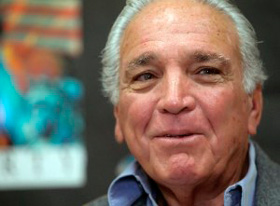 When a new museum of art opened late last year in Miami Jorge Perez the museum’s namesake spoke about the once taboo topic amongst Cuban American powerbrokers of increasing exchanges between artists in the U.S. with those in Cuba.
When a new museum of art opened late last year in Miami Jorge Perez the museum’s namesake spoke about the once taboo topic amongst Cuban American powerbrokers of increasing exchanges between artists in the U.S. with those in Cuba.
This week Alfonso Fanjul the billionaire sugar baron, whose business Fidel Castro seized in 1959 spoke for the first time publicly about investing in Cuba.
Both Fanjul and Perez are amongst an increasing number of powerful Cuban American civic, political and business leaders in South Florida breaking with the public line on relations with Cuba that have been in place for decades.
Paul Cejas is a Cuban, who left the island shortly after Fidel’s revolution. He is also a former Ambassador to Belgium. He says that if policy was put into place seeking a specific set of objectives, following a period of time, if those certain objectives had not been met, you change the policies or the objectives.
He said diplomacy is one tool of policy and it is used for engagement, even with bitter enemies.
The comments made this week by Fanjul were a huge bombshell amongst South Florida’s elite exiles from Cuba, even though he was not advocating bringing to an end the U.S. embargo.
During an interview with a leading newspaper, Fanjul, who has long been opposed to the government in Cuba, spoke of trips he has recently taken to the Caribbean island. He spoke of his interest in returning his vast sugar holdings of his family back to Cuba.
He did not say whether his return would be predicated on Fidel Castro and his brother the President of Cuba, Raul Castor dying or an end to the communist system on the island.
Perez a capitalist and big force in the revitalization of Miami is in no way apologetic about his desire of seeing Cuban art in his museum.
